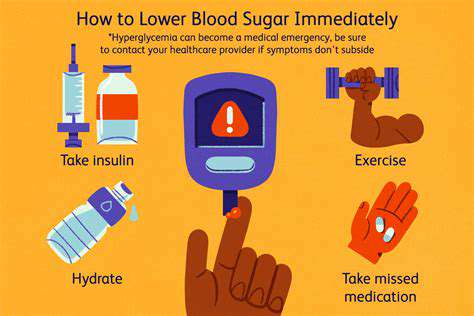Low Sugar Baked Goods for Diabetics: Smart Choices

Finding the Sweet Spot: Understanding Low-Sugar Diets
A low-sugar lifestyle focuses on reducing both added and natural sugars in foods, often adopted for better blood sugar control or overall wellness. Grasping the finer points of this approach is vital for lasting results and tangible health improvements. Rather than outright elimination, it’s about smarter food selections and recognizing how various sugars impact our systems.
The Importance of Moderation
Total sugar avoidance isn’t practical for most people, but balance is non-negotiable. Overindulging in sugar can trigger weight issues, insulin problems, and heightened disease risks. A practical strategy that includes occasional indulgences while emphasizing nutrient-dense foods proves more manageable and satisfying in the long run.
Spotting Hidden Sugars
Unmasking concealed sugars in processed items is a major hurdle for low-sugar adherents. Packaged foods, condiments, and even healthy options often harbor surprising sugar content. Mastering label interpretation and recognizing stealthy sweeteners like high-fructose corn syrup becomes crucial for grocery shopping success. This skill forms the backbone of maintaining reduced sugar intake.
Prioritize Whole, Unprocessed Foods
Whole foods naturally low in added sugars should dominate a balanced eating plan. Fresh produce, lean meats, and whole grains deliver essential nutrients while automatically minimizing processed sugar sources. Building meals around these items creates a natural barrier against excessive sugar consumption.
Natural Sugars in Perspective
While fruits and vegetables contain beneficial sugars, their impact on blood glucose still warrants attention. Differentiating between naturally occurring and added sugars while practicing portion control enables more informed dietary decisions. This nuanced understanding helps maintain balance without unnecessary restriction.
Holistic Lifestyle Integration
Reducing sugar intake extends beyond food choices. Regular exercise, stress reduction, and quality sleep dramatically amplify the benefits of a low-sugar regimen. These elements work synergistically to support overall health objectives.
Sustainable Long-Term Practices
Lasting success with reduced sugar consumption hinges on consistency and adaptability. Discovering satisfying alternatives to sugary favorites helps curb cravings and maintain motivation. Building a supportive network through cooking groups or educational resources fosters enduring commitment to this healthier approach.
Sweeteners That Support Your Goals

Natural Sweeteners for a Healthier Lifestyle
For those seeking sugar reduction, natural sweeteners present a viable solution. Derived from fruits, plants, or other natural sources, these alternatives provide sweetness without the drawbacks of heavily processed options. When incorporated thoughtfully, they can help manage cravings while supporting broader health objectives.
Evaluating nutritional profiles of various natural sweeteners enables informed selection. Considering calorie density, fiber content, and additional nutrients guides personalized choices that align with individual health targets.
Artificial Sweeteners: A Complex Picture
While marketed as sugar-free solutions, artificial sweeteners' long-term effects remain under scrutiny. Though potentially useful for short-term calorie reduction, emerging research suggests possible health implications requiring cautious use. Current investigations into their influence on gut microbiota and metabolic function warrant careful consideration.
Sugar Alcohols: A Balanced Approach
These unique sweeteners offer lower glycemic impact but may cause digestive discomfort in sensitive individuals. Recognizing that excessive intake can lead to bloating or gas underscores the need for moderation. Different sugar alcohols affect digestion and blood sugar variably, necessitating personalized selection.
Stevia and Monk Fruit: Naturally Beneficial Options
These plant-based sweeteners provide zero-calorie alternatives with clean flavor profiles. Their ability to enhance food and beverage tastes without added calories makes them valuable tools for health-conscious consumers.
Personalized Sweetener Strategies
Regardless of sweetener type, measured consumption remains paramount. Even natural options can pose issues when overused, highlighting the need for professional guidance. Individual health status, objectives, and preferences should dictate sweetener choices, ideally with input from nutrition experts.

- Kitchen Hacks for Meal Prep: Save Time
- Safely Defrosting Food: Best Practices to Prevent Bacteria
- Discovering Korean BBQ: Essential Marinades and Grilling Tips
- Understanding Micronutrients: Vitamins and Minerals
- Baking Gluten Free Brownies: Fudgy and Delicious
- Sustainable Grocery Shopping: Eco Friendly Choices
- Quick & Easy Chicken Noodle Soup: Comfort Food
- Low Carb Breakfasts: Start Your Day Right
- Healthy Breakfast Bowls: Customizable and Nutritious
- Cooking with Electric Skillet: Versatile Cooking
- Homemade Ricotta Cheese: Creamy and Fresh
- How to Store Apples: Keep Them Crisp